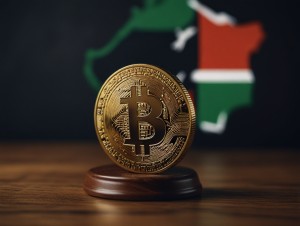Nigeria’s government is demanding a jaw-dropping $10 billion in penalties from Binance, the world’s leading cryptocurrency exchange, due to allegations of them causing significant financial losses in the country by manipulating exchange rates. This claim centers around accusations that Binance’s activities have led to a drastic depreciation of the Naira, Nigeria’s currency, by nearly 70% in recent months, shaking the nation’s economy to its core.
Bayo Onanuga, a spokesperson for President Bola Tinubu, has been vocal about the negative impact Binance’s operations have had on Nigeria. He specifically called out the platform for setting exchange rates that are not only unauthorized but deemed illegal, as the Central Bank of Nigeria (CBN) is the only entity legally permitted to set these rates in the country. According to Onanuga, Binance’s actions have not only violated this regulation but have also contributed to destabilizing the Nigerian economy during a period when efforts were being made to stabilize it.
The situation escalated on Thursday when the Nigerian government confirmed the arrest of two foreign executives from Binance. These individuals are currently under interrogation by security agencies on various allegations, including the platform’s involvement in money laundering and financing terrorism.
Olayemi Cardoso, the Governor of the Central Bank of Nigeria, disclosed that an astonishing $26 billion had flowed through Binance Nigeria in cryptocurrency trades. He raised concerns about the opaque nature of these transactions, highlighting that many were conducted through sources and users that could not be properly identified.
Despite these serious allegations, Onanuga mentioned that Binance staff are cooperating with the Nigerian government, providing necessary information to the authorities. This cooperation is crucial as the government seeks to understand the full extent of Binance’s impact on its economy and legal system.
One of the critical issues at hand is the legal status of Binance and other cryptocurrency companies in Nigeria. These entities have not registered in accordance with Nigerian laws, a point of contention since the former CBN governor, Godwin Emefiele, stated in 2021 that cryptocurrencies would not be accepted until they complied with local regulations. Despite a ban on cryptocurrencies being lifted in 2023, the requirement for these platforms to be registered with the Security Exchange Commission (SEC) to operate legally within Nigeria remains unfulfilled.
In response to the government’s demands, Binance has removed Naira transactions from its platform, indicating an effort to comply with Nigerian regulations. However, the government insists that if Binance wishes to operate in Nigeria, it must officially register, emphasizing the need for legal compliance and transparency in its operations.
The debate over Binance’s role in the fluctuating exchange rate and its broader implications for Nigeria’s economy highlights a critical moment for the country. The government’s budget was set with an exchange rate of 800 Naira to the dollar, but the actual rate has exceeded this figure significantly, attributed in part to the activities of Binance. Market operators have warned that without a crackdown on Binance, the Naira could face severe devaluation.
The investigation into Binance’s executives and their activities within Nigeria is ongoing, with security agencies probing the regulation of the currency exchange market. Zakari Mijinyawa, heading the press department of the Office of the National Security Adviser to the President, confirmed that these executives are being questioned. Discussions and agreements are being made with Binance officials, who are said to be cooperating with the investigation. However, the timeframe for the investigation’s conclusion remains unclear, as does the nature of any potential agreements between the Nigerian government and Binance.





